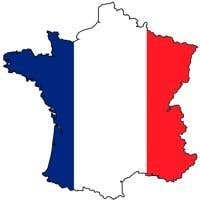This is a longer version of an article also published in the Financial Times.
Largely unobserved by the rest of us, the world’s most important wine producing country has developed one of the most stringent anti-alcohol policies west of the Persian Gulf. Sarkozy is famously abstinent. Chirac sipped beer. It has been at least 14 years since the French wine industry had an ally in the Elysée Palace.
Today, every advertisement for wine in the French press, whether it be for Château Lafite or Dom Pérignon champagne, has to carry the warning notice ‘L’abus d’alcohol est dangereux pour la santé, consommez avec modération’. (Alcohol misuse is dangerous for your health, consume moderately.)
All wine bottled for sale in France now has to carry an image of a pregnant woman with a prohibitive line through it.
Any form of alcohol-related sponsorship by even the smartest champagne company is banned. And it has been thought so likely that internet advertising of wine will also be forbidden that some of the most important sites such as Orange.fr have been refusing to take wine-related ads (although in the last few days it has been confirmed that such advertising will be allowed, so long as the sites are definitely not aimed at young people).
As if to rub salt in the wound, the French government recently circulated a brochure to all of France’s doctors, based on the national cancer research institute’s report on alcohol and risk late last year, which recommends total abstinence from wine.
Ten days ago French politicians voted on a healthcare bill that put a stop to the so-called ‘open bar’ (sic, in English) phenomenon whereby unlimited supplies of alcohol are offered, particularly to students who pay a small ticket price for the privilege of getting slammed at a brand owner’s expense. Wine producers were extremely concerned that one effect of this bill could be that they would no longer be allowed to pour tasting samples in their cellars and at trade fairs.
In the end the health minister Roselyne Bachelot, whose own constituency is in the heart of Muscadet country, made a last-minute exception for professional wine tastings, but it is a reflection of the current anti-wine climate in France that the majority of vignerons genuinely thought it possible that there would be an outright ban on what for many of them is the only sales technique they know.
It seems but a moment ago that France’s 600,000 vine growers were regarded as an important political force, to be feared by the government, and humoured by a succession of subsidies and grants. Today there is one small band of activists in the south of the country, CRAV, supposedly dedicated to the preservation of French viticulture by attacking such targets as present themselves to their remarkably short focus, most recently a winery outside Beziers owned by France’s largest bottler, deemed not to be paying growers enough. Other than that, it would seem that the French wine business has become supine, cowed and waiting for the next hammer blow to fall.
Wine consumption in France is plummeting (particularly among the young people, whom Madame Bachelot particularly wishes to save from the demon drink). French wine exports are dire. Vineyards are being pulled up. And yet there does not seem to be an organised lobby standing up for the interests of the wine industry. According to Provence-based wine broker Charles Blagden, 'no-one seems to have taken up the cudgels. There is more of a hue and cry about the new INAO laws.' The INAO, the body that represents France’s better quality wines, is currently preoccupied with a major reorganisation of French wine nomenclature that is supposed to create wines that can compete more directly with New World wines.
James Lawther, a Master of Wine and wine writer living near Bordeaux, believes that the French wine industry made a fatal mistake by not managing to distance itself from the more powerful beer and spirits lobbies. 'Vignerons feel they have little support from the government, unlike the Spanish government, which draws a clear distinction between spirits and wine. They give aid to wine-related building projects. King Juan Carlos will open new bodegas. Wine is seen in quite a different light in Spain.'
In France, one of the few voices to speak out against what he calls the ‘hygienists’ and their calamitous effect on the wine business is journalist Jacques Dupont of Le Point, but the vintners themselves seem almost resigned to their demonisation by France’s powerful health lobby.
Just before the recent healthcare bill was voted on, Charles Sydney, a British-born wine broker based in the wine village of Chinon in the Loire valley, was in London showing his wares to the UK wine trade in the bowels of the Royal Society of Arts – as if in recognition of the artistic nature of French winemaking. I asked him what he thought of the proposed ban, and was quite surprised by his reaction. He first of all found a wall to lean against, then let out a long stream of breath through his ample beard .
'I have growers come to dinner with us. I serve them a lot of wine. The wife doesn’t drink so that she can drive home. And then who takes the steering wheel? He does. The whole French wine culture needs to be re-examined at every level. We need to examine where wine is a cultural object. Some tasting rooms don’t even have spittoons, for example.'
It is certainly easy to see what inspires France’s anti-alcohol campaign. The traditional French attitude to drinking and driving, for instance, leaves much to be desired, with alcohol implicated in 45% of all fatal car accidents, even though this is slowly changing since the long-overdue reform in policing drunk drivers. As Charles Sydney points out, 'the French don’t seem to respond well to being asked to change their behaviour or their attitudes, but they do respond to being fined'.

